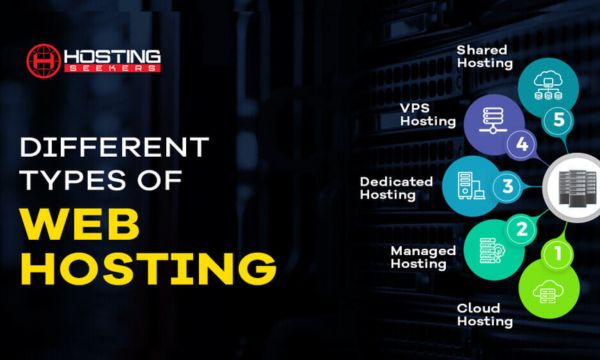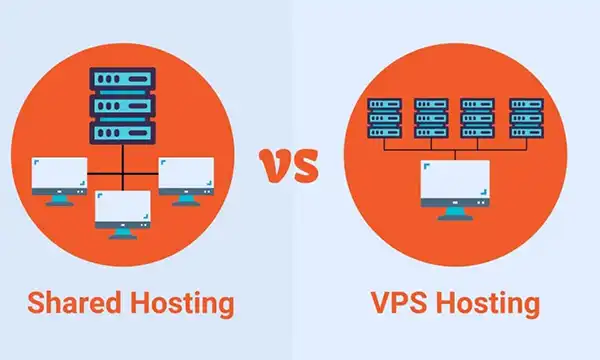Navigating Hosting Resource Limits
Ad
In the fast-paced digital age, building a strong online presence is critical for businesses and individuals alike. A website acts as a virtual storefront, allowing you to showcase your brand, products and services to a global audience.
However, the success of your online journey is highly dependent on the hosting resources that power your website.
Understanding and effectively managing these hosting resource constraints can have a significant impact on the user experience and even your website’s search engine optimization (SEO) efforts.
Ad
What are the Hosting Resource Limits?
Hosting resource limits refer to the amount of dedicated server resources provided by your web hosting plan. These resources include CPU (Central Processing Unit), RAM (Random Access Memory), storage, and bandwidth. Different hosting plans offer different levels of these resources, which determine how your website performs with different levels of traffic and engagement.
The Importance of Managing Managed Resources
Page Load Speed: One of the most critical factors that affect user experience and SEO is page load speed. A slow-loading website not only frustrates visitors, but also prevents search engines from ranking it higher in search results. Hosting resource restrictions play a key role in determining page load speed, so choosing a plan that fits the needs of your website is critical.
Ad
Traffic Handling: Websites can experience different levels of traffic, especially during marketing campaigns or viral content sharing. If your hosting resources are insufficient to handle sudden traffic spikes, your website may crash or respond slowly, resulting in a poor user experience. Upgrading to a plan with higher resource limits or using a Content Delivery Network (CDN) allows you to manage traffic effectively.
SEO Performance: Search engines prefer websites that offer a seamless user experience. Page load speed, server uptime, and overall website performance are ranking factors that search algorithms take into account. By staying within the limits of your hosting resources, you can ensure that your website always offers a high-quality experience, which can positively impact your SEO efforts.
See Too:
Tips for Getting Around Hosting Resource Restrictions
- Assess your needs: Understand your website’s requirements by analyzing factors such as expected traffic, content type, and functionality. This review will guide you in choosing the right hosting plan.
- Regular Monitoring: Keep an eye on your website’s performance metrics, including page load times and server response rates. If you notice a decrease in performance, it may be time to consider upgrading your hosting resources.
- Optimize content: Compress images, use efficient coding methods, and minimize unnecessary scripts to reduce server resource load. This improves page loading speed and resource usage.
- Consider scalability: Choose a hosting provider that offers scalable plans. Scalability makes it easy to adjust resource limits as your website grows, ensuring consistent performance.
- Use a CDN: A content delivery network distributes your website content across multiple servers, reducing the load on your main hosting server and increasing global access speeds.
Strategies for Efficient Resource Management
To further optimize your site’s performance and make the most of your hosting resource constraints, consider implementing the following strategies:
1. Cache Mechanism:
Implement caching mechanisms such as browser caching and server-side caching. These mechanisms store frequently accessed data, reducing the need for repeated requests to the server. This not only saves server resources, but also improves page loading speed for repeat visitors.
2. Content Optimization:
Pay attention to content optimization techniques. Compress images and other media files without compromising on quality. Minify CSS and JavaScript files to reduce their size for faster load times.
3. Database Management:
Efficiently manage your website’s database. Remove unnecessary data, optimize database tables, and implement indexes to improve data retrieval speed. This reduces the strain on server resources when retrieving information.
4. Resource intensive plugins and scripts:
Be careful when using third-party plugins, scripts, and integrations. Some of these components can consume significant server resources. Regularly check your site for plugins you no longer need, and make sure the plugins you use are optimized.
5. Content Delivery Network (CDN):
As mentioned earlier, a CDN distributes the content of a website to different locations, reducing the physical distance between the user and the server. This results in faster load times and less stress on the main hosting server.
6. Regular Backup and Maintenance:
Schedule backups and routine maintenance during low traffic periods. This prevents resource-intensive tasks from impacting the user experience during peak hours.
7. Upgrading Responsibly:
While you may need to upgrade your hosting plan as your website grows, you should assess your needs and choose a plan that offers the right balance of resources. Avoid overpaying for underutilized resources.
8. Security Precautions:
Implement strong security measures to prevent malware attacks and unauthorized access. Hackers can consume server resources through malicious activities resulting in poor website performance.
9. Use Monitoring Tools:
Implement monitoring tools to gain insight into your website’s resource usage and performance. These reports are regularly analyzed to identify potential bottlenecks and areas for improvement.
10. Responsive Web Design:
Choose a responsive web design that adapts to different screen sizes. This simplifies resource usage by eliminating the need for separate mobile and desktop versions of the site.
Conclusion
In the dynamic world of website management, understanding hosting resource limitations and dealing with them effectively is critical. Implementing the above strategies will ensure that your website runs smoothly, loads quickly, and offers a great user experience. Refining your asset management practices can not only improve your site’s performance, but also contribute to its overall success in terms of SEO, user engagement, and conversion rates. Remember, a well-optimized website will not only satisfy your visitors, but also impress search engines, resulting in higher rankings and visibility
FAQs
1. What are the hosting resource limits?
Hosting resource limits refer to the amount of allocated server resources that come with your web hosting plan, including CPU, RAM, storage, and bandwidth.
2. Why are hosting resource limits important?
Hosting resource limitations directly affect a website’s performance, page load speed, and user experience. They also play a role in search engine optimization (SEO) efforts, as search engines prefer websites that load quickly and perform well.
3. How do hosting resource restrictions affect SEO?
Websites that offer a seamless user experience, including fast loading speeds, tend to rank higher in search engine results. Hosting resource restrictions can affect a website’s performance, and therefore SEO performance.
4. What happens if I exceed the hosting resource limit?
Exceeding your hosting resource limits can cause your website to slow down, crash, or fail. This has a negative impact on the user experience and can lead to a lower ranking in search engines.
5. When should I consider upgrading my hosting package?
If you are constantly experiencing slow page loading, crashes during traffic spikes, or consistently high website resource usage, consider upgrading your hosting plan. An upgrade can provide more resources to handle more traffic and maintain peak performance.
 Comparison of hosting services across different types
Comparison of hosting services across different types
Ad Here’s a comparison of hosting services across different types: Shared Hosting: Bluehost: Starts at around $2.95 […]
More Affordable Hosting Services: Finding the Perfect Balance Between Price and Quality
Affordable Hosting Services: Finding the Perfect Balance Between Price and Quality
Ad In today’s digital environment, a strong online presence is critical for businesses and individuals alike. Whether […]
More Shared vs VPS Hosting: Which is Right?
Shared vs VPS Hosting: Which is Right?
Ad When it comes to hosting your website, choosing the right hosting solution is critical to your […]
More